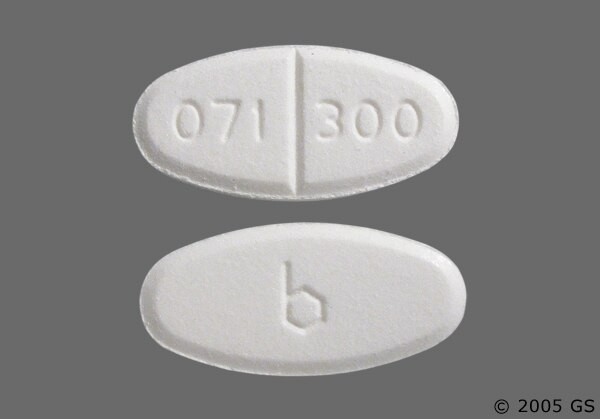
isoniazid – oral
WARNING: Isoniazid rarely causes potentially fatal liver disease. The risk is increased in people 35 years and older who use alcohol or illegal injection drugs or have long-term liver problems. Tell your doctor immediately if you develop symptoms of liver disease, including persistent nausea/vomiting, severe stomach/abdominal pain, unusual weakness/tiredness, dark urine, yellowing eyes/skin. Your doctor should order liver function tests while you are taking this medication.
USES: Isoniazid treats active tuberculosis (TB) infections. It also prevents active TB infections in people who may be infected with the bacteria. Isoniazid is an antibiotic that stops bacterial growth. It does not work for viral infections like the common cold or flu. Unnecessary use of antibiotics can lead to decreased effectiveness.
HOW TO USE: Take this medication by mouth on an empty stomach as directed by your doctor. If using the liquid form, measure the dose using a special measuring device/spoon. Do not use a household spoon. If you take antacids containing aluminum, take this medication at least 1 hour before the antacid. Take this drug at evenly spaced intervals to keep the medicine at a constant level in your body. Continue taking this medication until the full prescribed amount is finished, even if symptoms disappear. Stopping too early may result in a return of the infection and make it more difficult to treat. Your doctor may also recommend taking vitamin B6 (pyridoxine) to help prevent certain side effects from isoniazid.
Isoniazid may interact with foods containing tyramine/histamine, causing increased blood pressure, flushing of the skin, headache, dizziness, or fast/pounding heartbeat. Follow a special diet while taking this medication. Tell your doctor if your condition persists or worsens.
SIDE EFFECTS: Nausea/vomiting or stomach upset may occur. Tell your doctor if any of these effects persist or worsen. Serious side effects include numbness/tingling of arms/legs, painful/swollen joints, change in the amount of urine, increased thirst/urination, vision changes, easy bruising/bleeding, signs of a new infection, mental/mood changes, and seizures. A serious allergic reaction to this drug is rare. Seek immediate medical attention if you notice symptoms such as rash, itching/swelling, severe dizziness, or trouble breathing.
PRECAUTIONS: Before taking isoniazid, tell your doctor if you are allergic to it or if you have any other allergies. Talk to your pharmacist about inactive ingredients in this product that may cause allergic reactions. Before using this medication, tell your doctor about your medical history, especially previous severe reactions from isoniazid, liver disease, alcohol use, HIV infection, kidney disease, diabetes, peripheral neuropathy, and recent childbirth. Tell your doctor about all the products you use before having surgery. Avoid alcoholic beverages and certain laboratory tests while using this medication. Consult your doctor for more details. Use this medication during pregnancy only if necessary. Consult your doctor before breastfeeding.
QUESTION
DRUG INTERACTIONS: Some drugs can change if taken with this medication, increasing the risk of serious side effects or affecting the effectiveness of the medications. Inform your doctor about all the products you use before starting treatment. Do not start, stop, or change the dosage of any other medicines without your doctor’s approval. This medication may interfere with certain laboratory tests, so make sure your doctors know you use this drug.
OVERDOSE: If overdose is suspected, contact a poison control center or emergency room immediately. Symptoms of overdose include vision changes, slow/shallow breathing, and severe drowsiness.
NOTES: Do not share this medication with others. Monitor your progress and check for side effects through laboratory and/or medical tests. Consult your doctor for more details.
MISSED DOSE: For the best benefit, take each scheduled dose as directed. If you miss a dose, take it as soon as you remember. If it is near the time of the next dose, skip the missed dose and resume your usual schedule. Do not double the dose. Consult your doctor or pharmacist for more instructions.
STORAGE: Store at room temperature away from light and moisture. Do not store in the bathroom. Keep all medicines away from children and pets. Properly discard this product when expired or no longer needed. Consult your pharmacist or local waste disposal company for more details.
DRUG INTERACTIONS: Some drugs can change the effects of this medication. Inform your doctor about all the products you use before starting treatment. Do not start, stop, or change the dosage of any other medicines without your doctor’s approval. This medication may interfere with certain laboratory tests. Keep a list of all the products you use and share it with your doctor and pharmacist to lessen your risk for serious interactions.
OVERDOSE: If overdose is suspected, contact a poison control center or emergency room immediately. Symptoms of overdose include vision changes, slow/shallow breathing, and severe drowsiness.
NOTES: Do not share this medication with others. Monitor your progress and check for side effects through laboratory and/or medical tests. Consult your doctor for more details.


